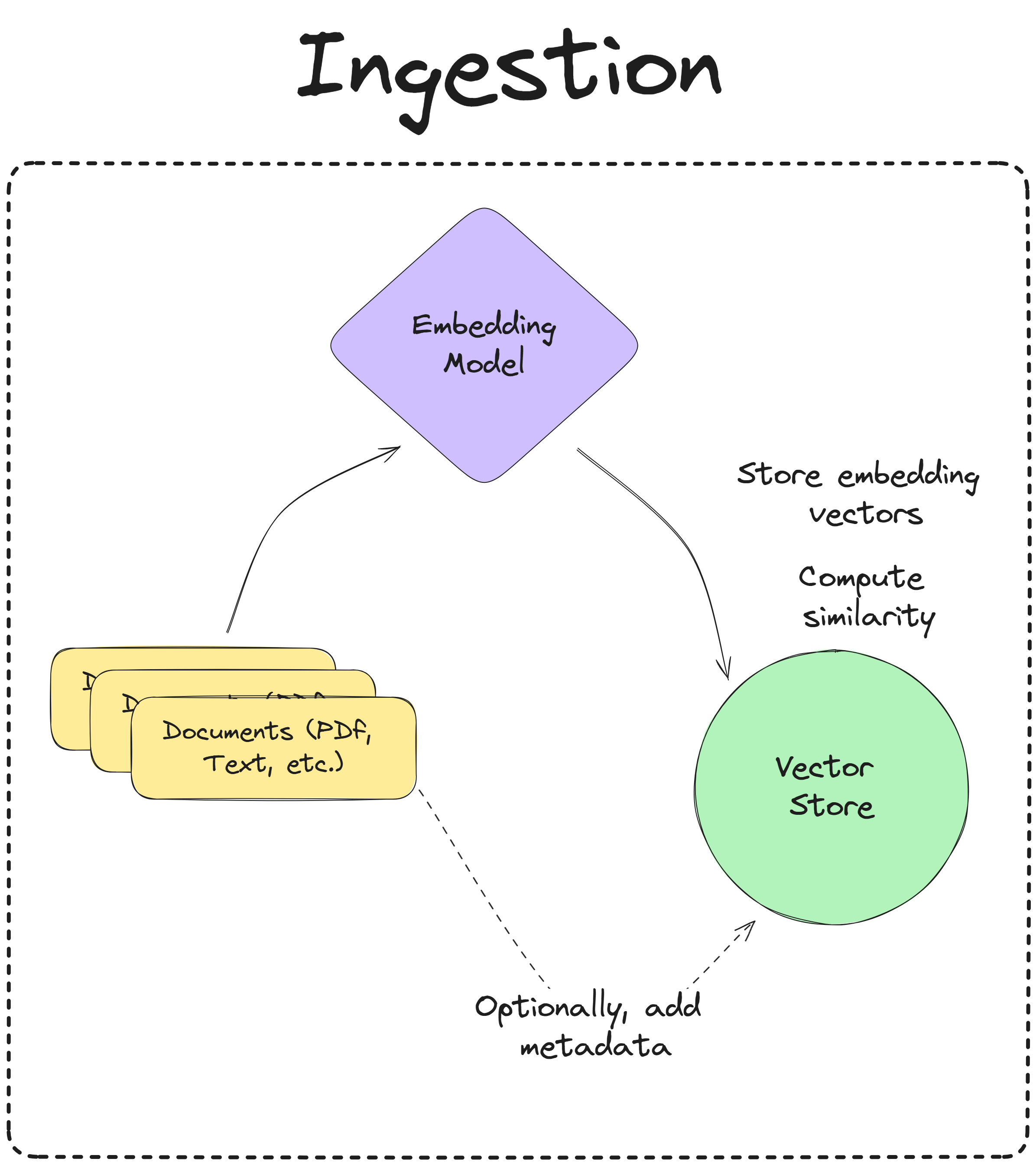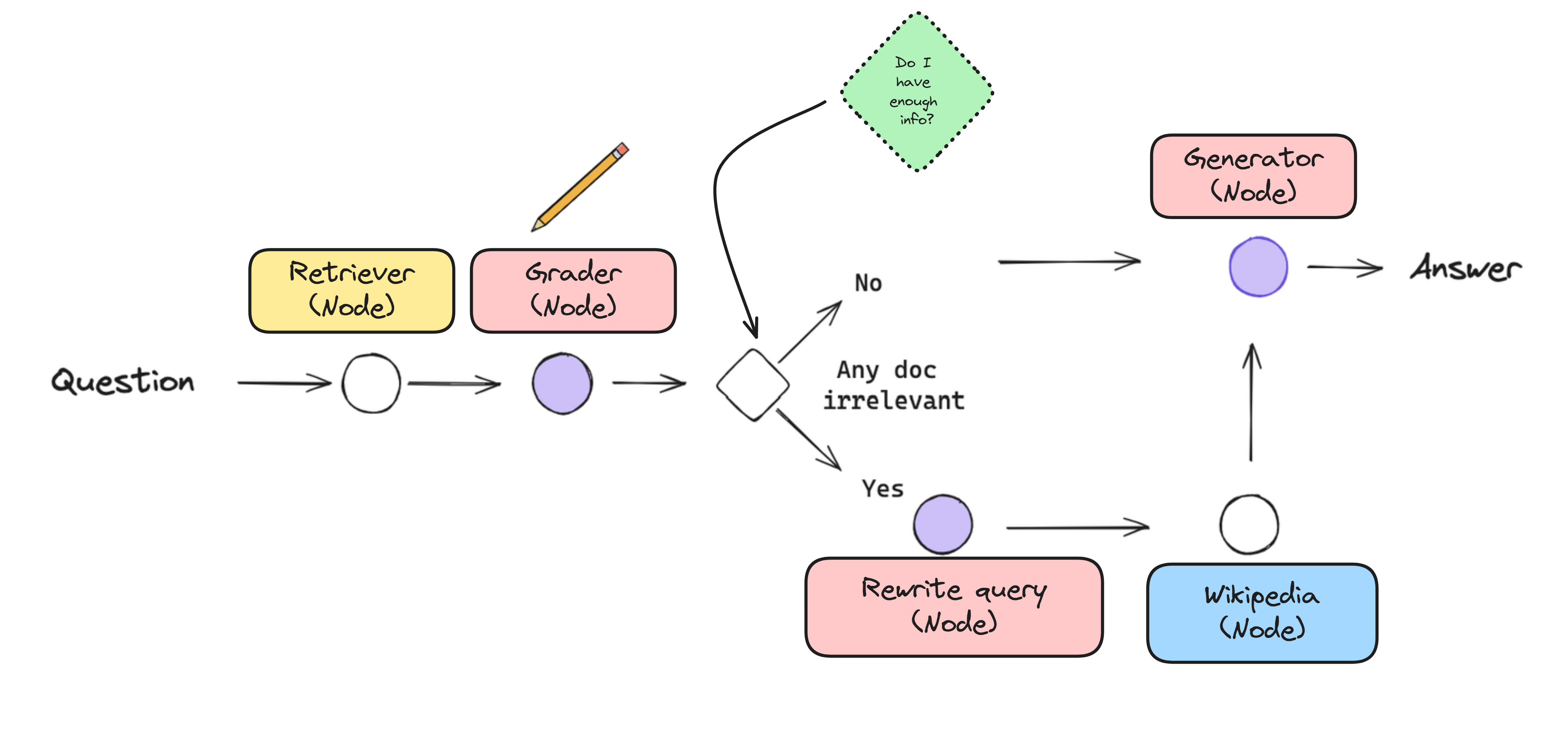title: 10-Q Chatbot RAG Application
emoji: 📝
colorFrom: red
colorTo: green
sdk: docker
pinned: false
app_port: 7860
This chatbot is designed to answer questions about Airbnb's 10-Q financial statement for the quarter ended March 31, 2024.
It uses corrective RAG as the architecture to retrieve information based on the user's input, grading the relevance of the retrieved documents, and optionally querying Wikipedia for additional information, if necessary.
Specifications
- Model type can be configured inside
utils/config.pyfile. Default is set togpt-4o. - Vector store is set to
qdrant(locally on disk) by default. The data directory and collection name can be configured in theutils/config.pyfile. - Chainlit is used as the UI for the chatbot.
- The chatbot is deployed using Docker on HuggingFace Spaces.
LangChainis used as the infrastructure and framework for the chatbot.LangGraphis used to compose the chatbot's flow.
Flow engineering
Ingestion

The ingestion pipeline takes in documents, converts them into embeddings and stores them in a vectorstore to be used for retrieval.
Question Answering
To perform Q/A, the chatbot uses a corrective RAG architecture, which is a strategy that involves self-reflection on retrieved documents. The flow is as follows:

The user provides a question, then:
- The query is sent to the vector store to retrieve the most relevant documents. This is done through the
retrievernode. - The
gradernode receives the question and the retrieved documents and assigns a binary relevance score to each document with reasoning. This leads to filtering out irrelevant documents in the state and toggling thewikipedianode, both of which will be used in the next junction. - Based on the logic defined in the conditional edge, the chatbot will either: decide to generate an answer from the retrieved documents, or rewrite the user's question and query Wikipedia for additional information.
- The
rewriternode rewrites the question with semantic intent and sends it to thewikipedianode and updates the state with the rewritten question. - The
wikipedianode queries Wikipedia for additional information based on the rewritten question and updates the state with new documents. - The
generatenode generates an answer based on the retrieved documents and the original / rewritten question and sends it to the user.
Sample traces
Trace 1
- Question: "What is Airbnb's 'Description of Business'?"
- Trace: LangSmith
- Ground Truth:

Trace 2
- Question: "What was the total value of 'Cash and cash equivalents' as of December 31, 2023?"
- Trace: LangSmith
- Ground Truth:

Trace 3
- Question: "What is the 'maximum number of shares to be sold under the 10b5-1 Trading plan' by Brian Chesky?"
- Trace: LangSmith
- Ground Truth:

Configuration
Prompts
Prompts for each model can be configured in the utils/prompts.py file.
Models
Models can be configured in the utils/config.py file.
Vectorstore
The vectorstore can be changed in the nodes/retriever.py file. Note that the default vectorstore is set to qdrant and persists locally on disk. Ideally, this should be changed to a remote vectorstore for production.
Chains
Individual node chains can be configured in the nodes directory.
UI
Chainlit is used as the UI for the chatbot. The UI can be configured in the app.py file.
Server Configuration
A sample FastAPI server is provided in the server.py file. Note that this uses LangServe
TODO
- Implement memory in the chatbot
- Fix streaming issues in the UI - for some reason, I can't figure out LangGraph with Chainlit